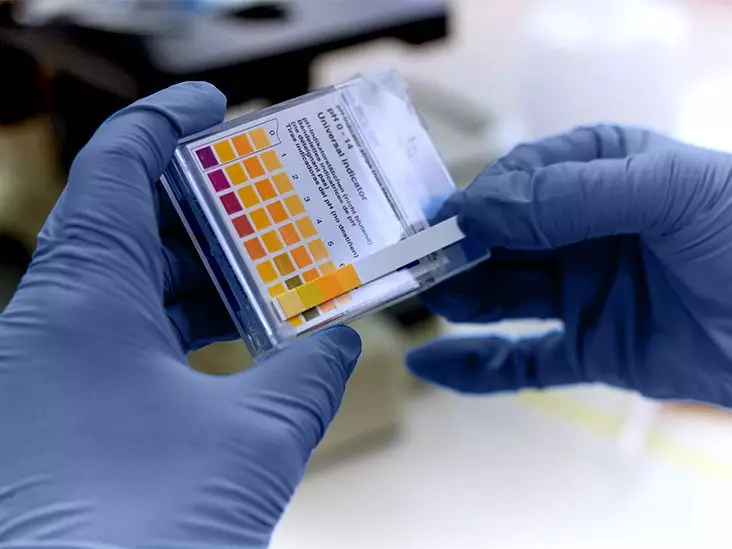Prostate cancer poses a significant clinical challenge, primarily due to the complexities involved in its early detection. This disease, which ranks among the most commonly diagnosed cancers in men, can lead to severe health complications and even mortality if not identified promptly. While treatment options have become increasingly effective, the path to early diagnosis remains obstructed by the absence of reliable biomarkers. The current standard of care revolves around PSA (Prostate-Specific Antigen) testing, which unfortunately has significant limitations. High PSA levels can result from a variety of conditions beyond cancer, rendering this method insufficient on its own. Thus, the quest for a more accurate and less invasive diagnostic tool has become imperative.
Innovative Research Findings
Recent breakthroughs in the field provide hope for innovation in prostate cancer detection. A group of researchers has developed a compelling new approach that utilizes urine-based biomarkers to accurately identify both the presence and progression of prostate cancer. This pioneering study, published in Cancer Research, harnesses the power of artificial intelligence alongside extensive genetic analysis to create a more nuanced understanding of the disease. By analyzing mRNA activity from countless individual tumor cells and classifying them according to their cancer grade and location, researchers have crafted sophisticated digital models that facilitate the identification of candidate biomarkers.
The implications of this work are significant. According to lead researcher Martin Smelik, the findings indicate that early-stage prostate cancer can be effectively detected by analyzing specific biomarkers present in urine. This methodology not only surpasses the accuracy of traditional PSA testing but also offers a non-invasive, painless, and cost-effective alternative. As Smelik points out, the results could herald a transformative shift in how we screen for prostate cancer.
The Advantages of Urine-Based Screening
The potential benefits of urine-based biomarkers extend beyond mere accuracy. As noted by Dr. Milan Sheth, an expert in oncology who commented on the study, early diagnosis of prostate cancer is crucial in averting complications. The traditional approaches, often involving uncomfortable and invasive procedures typically performed by urologists, can deter individuals from seeking timely medical advice. In contrast, a simple urine test could democratize access to screening and facilitate earlier intervention.
Moreover, the identified urine biomarkers uniquely demonstrate a heightened sensitivity. Not only can they distinguish between cancerous and non-cancerous states, but they can also provide insights into disease severity. According to Sheth, this revolutionary method may redefine the landscape of prostate cancer diagnostics, underscoring the pressing need for alternative screening mechanisms.
Next Steps: Clinical Trials and Broader Applications
As promising as the research is, the next steps are vital for its successful translation into clinical practice. Plans are underway to conduct large-scale clinical trials aimed at validating the effectiveness of these urine-based biomarkers. Additionally, discussions are in motion to integrate these novel biomarkers into existing prostate cancer studies across the UK, expediting implementation and testing. This proactive approach not only emphasizes the urgency of the situation but also showcases a commitment to improving patient outcomes on a larger scale.
Furthermore, it’s worth noting the broader applicability of these methods. While the study focuses on prostate cancer, the methodologies employed could potentially be adapted to other types of cancer. This universality offers an intriguing prospect for the future of cancer diagnostics, hinting at a landscape where detection protocols are streamlined and more accessible to patients globally.
The Call for Collaborative Research
Yet, the development of reliable urinary biomarkers will require more than just innovative research; it calls for global collaboration within the scientific community. Dr. Ramkishen Narayanan, a board-certified urologist, emphasizes this necessity by referencing the financial and logistical challenges associated with advanced research techniques like spatial transcriptomics. A unified effort could yield a broader array of insights into biomarker development, maximizing benefits for the public.
The intersection of AI and medicine in this research exemplifies an exciting frontier that introduces not only a novel means of detection but also a potential paradigm shift in cancer diagnostics. As we continue embracing technological advancements in healthcare, it is essential to remain vigilant about ensuring that the outcomes are equitable and accessible to all individuals at risk.
The emergence of urine-based biomarkers marks a significant advancement in prostate cancer diagnostics. By prioritizing early detection through innovative methods, we can aspire to dramatically improve treatment outcomes and quality of life for many men facing this formidable disease. The optimism surrounding this research is palpable, with the potential to revolutionize screening protocols and adopt a more humane approach to cancer diagnostics as we look toward the future.

